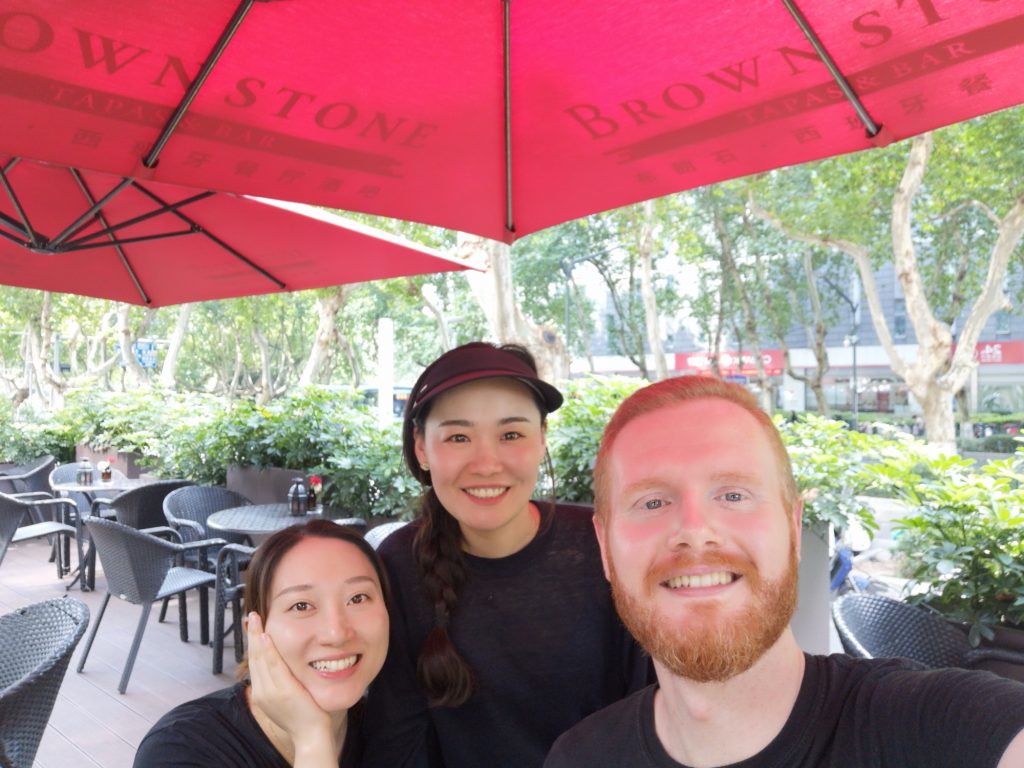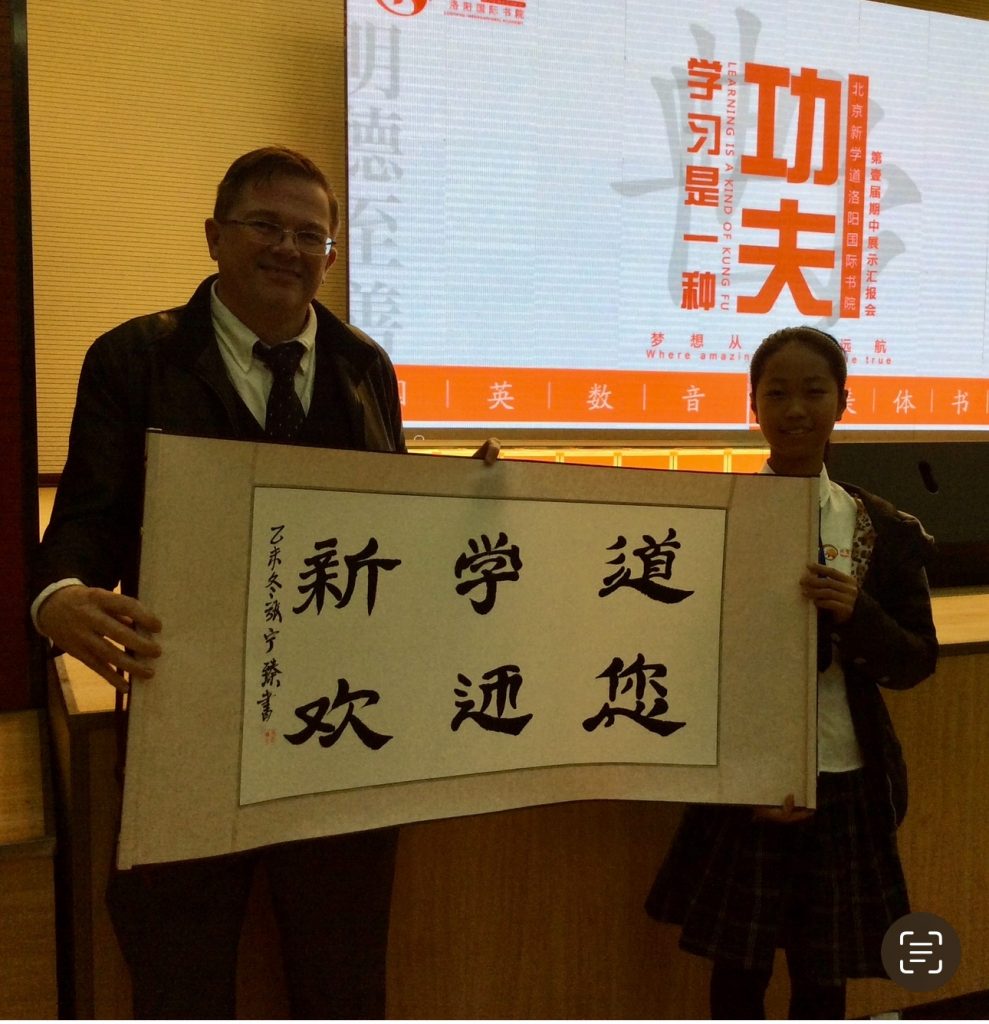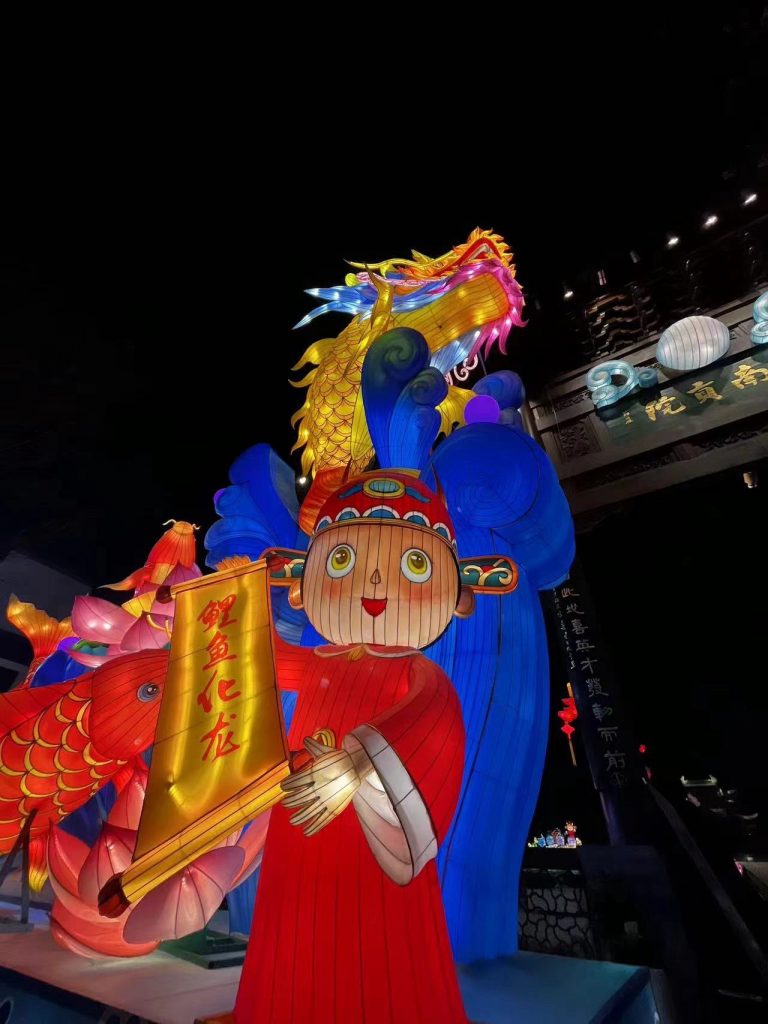
In this Chair’s Blog I want to give a platform to our talented, possibly younger SACU members, so that we hear from a diversity of voices about our theme of Anglo-Chinese friendship. So in this blog I’m handing over to an article by Arron Van Rompaey. Arron is a SACU Council member who relocated to Nanjing, China, in August 2023 to take up a post as a teacher of Literature and Inter-cultural Studies in a Chinese middle school.
Arron’s topic is learning Chinese. I think this is at the heart of friendship between two peoples. Arron’s article is delightfully honest about the challenges and joys of learning the Chinese language. I should know, I’ve struggled with the same phenomenon for ten years living and working in Beijing. Throughout this time my colleagues have been infinitely patient and forgiving as I make a pig’s ear of their language on a daily basis.
The rewards of the struggle are enormous. It’s not just the warm smiles on the faces of students or parents when you get a phrase right (finally!). Vitally important to me is learning to think in a new language. There are things you can say in Chinese that are exactly the same as in English. An example is 隔墙有耳 – géqiáng-yǒu’ěr – ‘walls have ears’, which is word for word the same. And then other phrases take you into a whole new world of expression. One of my current favourites is 白驹过隙 – báijūguòxì – a white horse passes a crack in the wall – the poetic equivalent of ‘time flies by’ in English.

Let’s enjoy Arron’s article:
“ 大家好 , da jia hao, hello everyone,
I have been studying Chinese on and off for almost 10 years. I would like to take this opportunity to emphasise the “off” part of the previous sentence. There have been a few years during that time when I did not study. Not at all. One of those years I was even living in China. Yes, I was in China and I was not studying Chinese. Which is moderately indefensible. I will try to defend it anyway. I was busy. Of course I was interacting with Chinese people on a daily basis so I was at least getting some practice. But I was not actively studying. I really was quite busy.
Chinese occupies a very contradictory space in my psyche. In that it is something that I am passionate about and find enriching, yet something I often avoid working on and causes me no end of stress. I am also a creature of routine and chronically lazy, so if Chinese can’t slot in naturally to my day-to-day life there really is no hope. So, this language learning journey has been part marathon, part siesta, part having dinner at a nearby restaurant and watching everyone else go by on their own journey.
I first started studying when I happened to glance at some Chinese characters in 2014 and thought “What the heck is going on here?”. Chinese characters were so radically different to all the alphabet-based languages I had previously engaged with. I enrolled in an evening class, and after one lesson felt that parts of my brain which had never been called upon suddenly had a lot thrown on their plate. I was prescient enough to realise that one class per week was never going to cut it and that if I wanted any hope of mastering the language I would have to go to China. I was lucky to be accepted into a summer scholarship programme in Shanghai in 2015 to study the language and culture. There, I discovered CHINA. That’s right, it was me, none of this Marco Polo nonsense.
Since you’re reading this you are probably in-the-know, but I’ll say it anyway for those of you who aren’t: China is pretty cool. The people are chill and lovely, the food is great, the transportation is VERY convenient, and you can have bubble tea delivered to your door at any hour of the day. There is no none-pretentious way for me to say this, but I feel like this is my home. From when I first got off the plane I felt very calm, very at peace. Relaxed in general. This is at Pudong Airport in Shanghai which most people would not describe as “relaxed”, but that was how I felt.
1 year later I was living and working there full-time. 3 years after that, frustrated at my lack of progress/time to study (see above, I swear I was very busy), I enrolled in a full-time Mandarin course at Nanjing University. Within a month I could write essays and express more complex thoughts in Mandarin, and I finally felt like I was getting to grips with the language.
However, the numerologically-able among you may have realised that this was in 2019 when I enrolled. LATE 2019. I’m sorry to bring up what is now a form of collective trauma for everyone on the planet, but halfway through my studies Covid reared its sickly head. I did the first part of lockdown here in Nanjing, and then joined the UK for the start of their lockdown too. I was trapped in the UK, with only hand luggage. It’s shocking expensive to have all your possessions shipped during the start of a global pandemic in case you’re interested.
So, for 3 years, I was back in the UK. There is a lot of positive things to say about that time there: I discovered SACU, got my MSc, made many amazing friends and raised a beautiful cat. My Chinese however, sat on the back-burner. A particularly cool back-burner. In a room with a draught. I could feel it within me, slowing dying. Therefore, I was overjoyed to get the chance to come back and I started my new job (still in Nanjing!) in August last year.

The first week was painful. Things I had previously been fluent in (ordering bubble tea) came out stilted. My demeanour was confident, but my mouth was not up to the task. But I was determined. This was the chance to show Chinese who was boss. I studied. I studied every day. Every chance I got I spoke. I read. I learned the words on my shampoo bottle. I learned the announcements on the subway by heart. I started hobbies which were Chinese-speaking only. Every day.
I would love to say that 5 months later I am now fluent and know every single character even the really weird ones like 龖 (I do know that one! It means a dragon flying. Pretty cool right?) but I know I still have a looooong (dragon pun intended) way to go. But, I am proud to the point of ecstasy to say that I celebrated (western) new year with my Chinese friend group who cannot speak English. I was able to follow and participate in the conversation, and absolutely destroy them at Mario Party. And if that isn’t what’s important in life then I don’t know what is.”

Arron, thank you for the inspirational sharing. I need to get back to my own studies! But before we finish let’s remember the amazing story of the Macartney embassy in 1793 from George 111 to the Qianlong Emperor. Incredibly at this critical meeting of two cultures only one member of the British party had learned any Chinese, George Thomas Staunton, the twelve year old son of Macartney’s secretary! The Emperor was so impressed he befriended the boy and gave him the gift of his purse, a precious personal possession. History records that the mission failed, a failure which contributed to disastrous relationships between Britain and China throughout the nineteenth century. ‘What if..’ is a meaningless historical game, but maybe, just maybe, a little more shared language and culture on both sides might have led to different outcomes.
If you have a story to tell of learning either English or Chinese as a route to greater Anglo-Chinese friendship you are invited to share it on this platform.